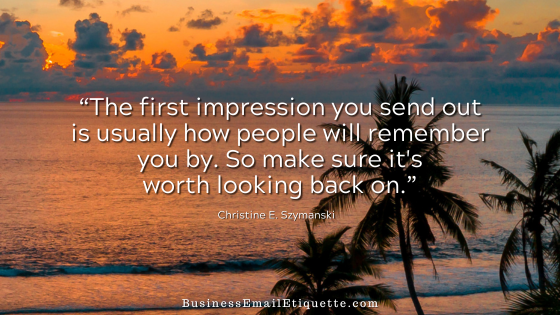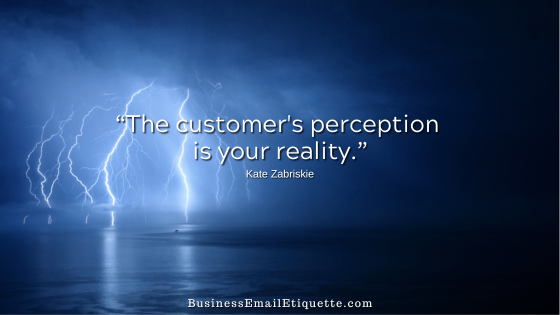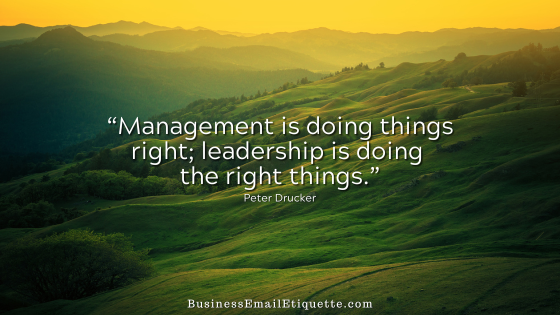Inefficient Email Communicators

Have you communicated with emailers who ignore the questions you asked? Are there those who you know simply did not read your email in its entirety?
Not only do they not answer your questions, but does their reply include additional questions for you? Enough to drive you crazy, right?
It’s Called Inefficiency
If these contacts were face-to-face, they would be required to listen to your words. They would then respond to that information and your questions immediately.
Bingo! You have the necessary information to conduct business.
However, they can ignore your side of the “conversation” within an email conversation to continue it in their preferred direction. They can also reply to only what they find necessary or are prepared to answer.
In my experience, those who communicate in this manner are often not profitable customers, partners, or providers. When you cannot communicate with detail and clarity in your business communications, it reflects not only inefficiency but also a lack of reliability.
Your business email (if you are a customer — that’s business too) requires your full and prompt attention to detail. That means we should not approach email with any less detail than any other mode of business communication.
Email Avoiders
You’ve probably encountered an email avoider or two. (Or are you one?)
Specific questions asked in the original email do not receive answers in the subsequent reply. Instead, they are often disregarded or ignored—I’m not sure which is worse, but it happens frequently.
Here is an example I recently experienced with someone who ignores the details in an email. It pertains to one of my e-commerce websites.
In this case, ordering requires you to measure your wrist so we can make a custom item for you. When folks place orders for 8″ plus, based on our over a decade of experience, as a courtesy, we verify that they used our instructions, as each item will be custom-made for them.
Please, just read…
For perspective, an 8″ wrist is unusually large. This latest example is a customer who ordered a bracelet for a 9.625″ wrist. It took two email follow-ups to receive a response.
Yes, he admitted he didn’t use our instructions and that his wrist measured 7 3/8 inches. That makes more sense, but no apologies or thank yous for double-checking.
This is the kind of person who would want a refund because the bracelet was too large for them. That’s why we always confirm to CYA.
Additionally, in his size update email, he requested that an item be added to his order. No problem, I updated his order and sent him a new invoice with a link for the additional payment. A whole $1.50. Which he never paid.
Therefore, another email had to be created, noting that his order was pending until we received the additional fee. To that, he claimed we had already charged his card, as it was listed on the order invoice. He never bothered to click the link to see the $1.50 request or confirm the original charge amount vs. the new order total.
Then, he got snotty. This was our fault (that he did not read our emails or website). Not his fault for not measuring correctly. Not his fault for expecting to add something to an order for free.
So I just refunded the entire order rather than continue to deal with his inability to read emails and proceed accordingly. Customers like that are trouble.
The Blinders are on…
Selective replies are not conducive to building confidence in any long-term business relationship. It can make the other side wonder what else you are not paying attention to.
Is this the type of communicator you want to do business with? Probably not. Is this the type of communicator you want to be known as? I don’t think so.
Individuals who don’t read emails in their entirety make others less efficient. They also cause more work by forcing you to restate questions or ask for clarification. And I hate being made inefficient. Don’t you?
The saying that the “customer is always right” does not give tacit permission to ignore requests or sidestep issues. The same goes for the other side. Both parties to the business relationship have a responsibility to communicate in a manner that facilitates easy business transactions.
Being a Good Business Partner
A big part of being a good business partner is respecting others’ time. This requires reviewing each email and responding point by point. It does not mean ignoring what you do not prioritize or are not ready to discuss.
When I email individuals who communicate in this manner, I can count on the fact that they are probably disorganized in everything else that they do. I make an extra effort to ensure my emails are clear and concise. Decades of emailing for business have repeatedly confirmed this perspective.
There is no reason not to be an organized and efficient business email communicator. Unless, of course, you are lazy and disorganized.
This is business, after all.
How you respond to emails will be a window into what it will be like to do business with you. Inefficiency in your email communications does not bode well for the relationship-building process, which is critical to successful business partnerships.
If you want to be taken seriously, clarify what you need from the conversation. For example, “I need your response to the following…”. Ask for clarification if you are unsure rather than typing accusations.
When you reply to emails, check that your response addresses the concerns and questions of those you are responding to, point by point. Don’t leave them wondering. Instead, strive to impress by being the epitome of efficient communications.
Never underestimate the importance of taking the time and communicating like a detail-oriented professional. Those efforts will reflect that you are, in fact, a business partner that can be trusted. Regardless of which side you are on.







